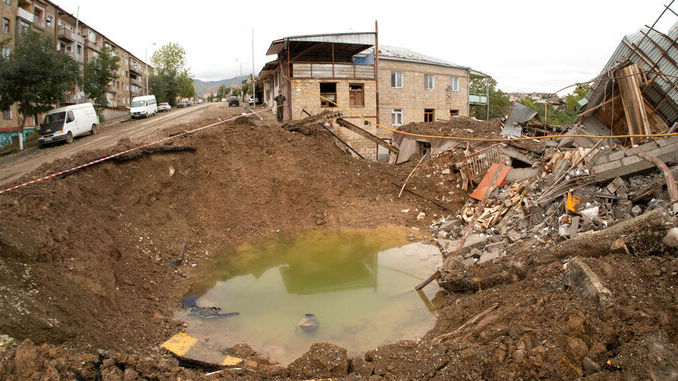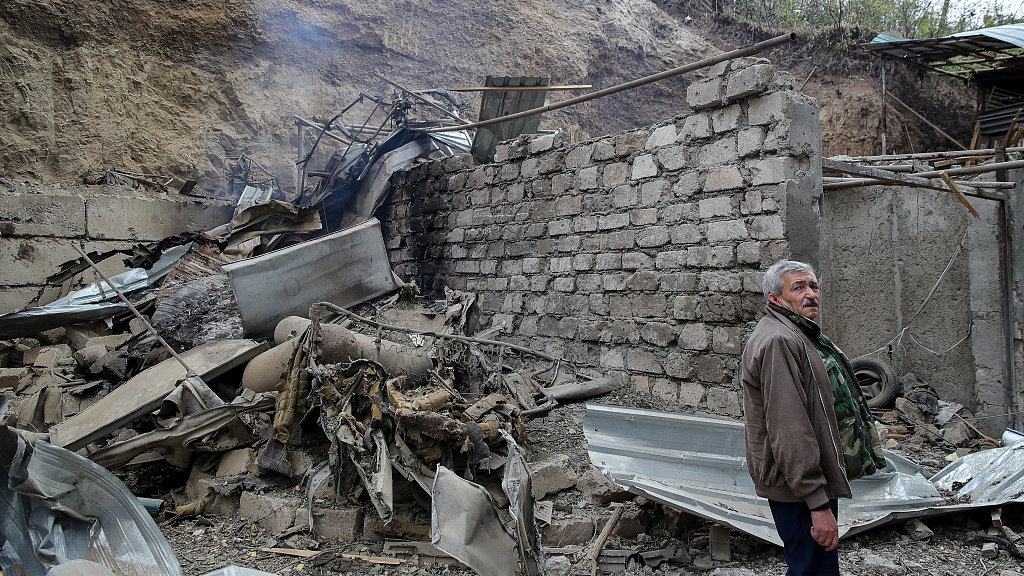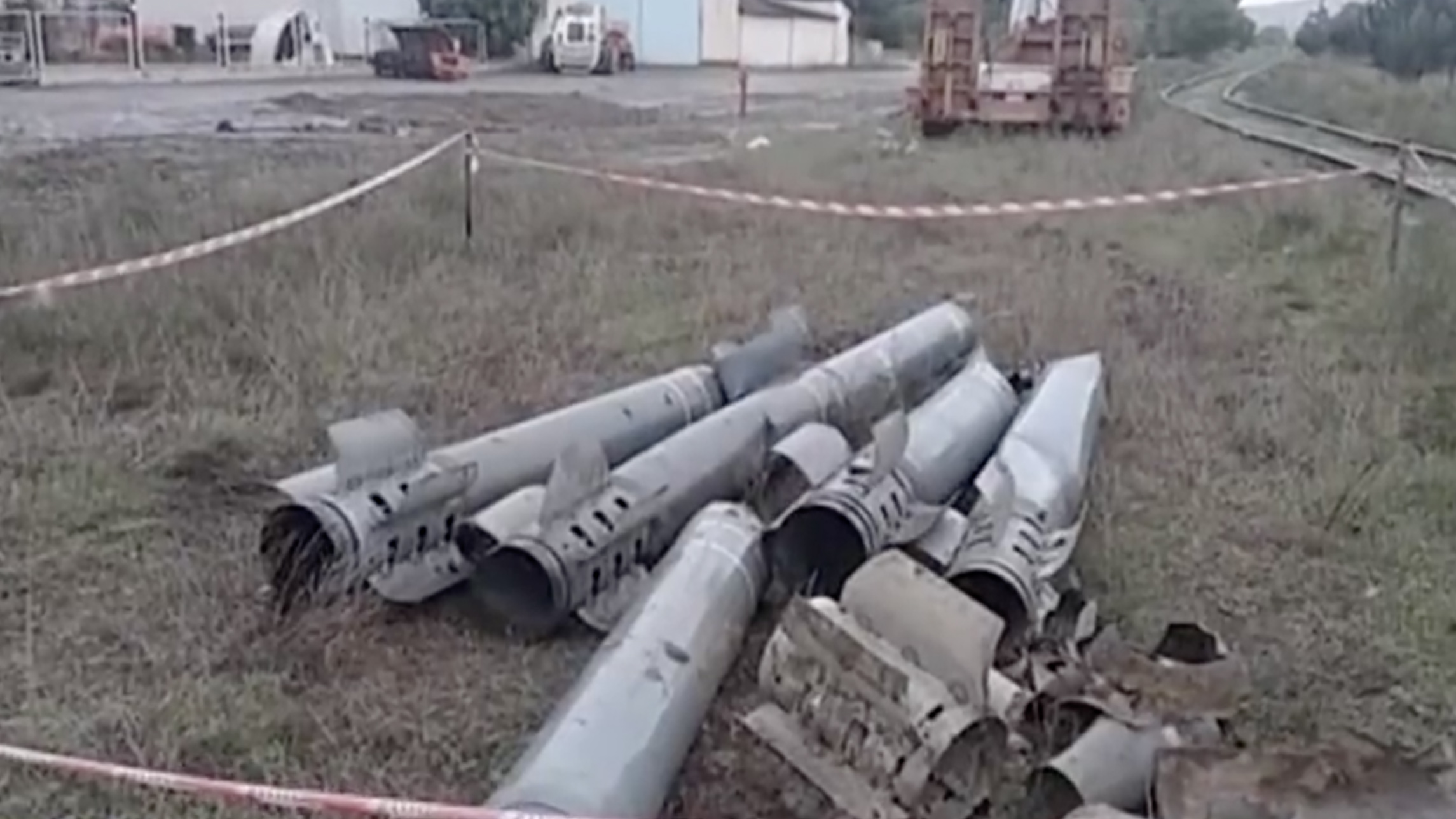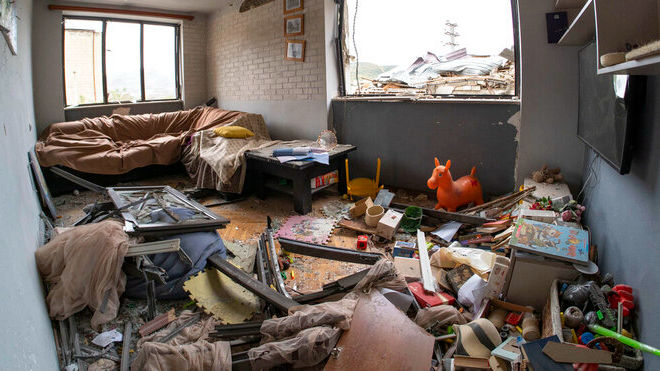
A crater after shelling by Azerbaijan's artillery during a military conflict in Stepanakert, October 7, 2020. /AP
A crater after shelling by Azerbaijan's artillery during a military conflict in Stepanakert, October 7, 2020. /AP
France, the United States and Russia will step up efforts to end fighting between Azeri and ethnic Armenian forces in the South Caucasus by holding talks in Geneva on Thursday, as fears of a regional war grow.
Representatives from the three countries would also meet in Moscow on Monday to look at ways to persuade the warring sides to negotiate a ceasefire.
France, the United States and Russia are co-chairs of the Organization for Security and Cooperation in Europe's (OSCE) Minsk Group that mediates over Nagorno-Karabakh.
"We want everyone to understand that it's in their interest to immediately stop hostilities without conditions and that we start a negotiation," said French Foreign Minister Jean-Yves Le Drian.
It's uncertain whether any Armenian and Azeri representatives would attend but Azerbaijan said its foreign minister, Jeyhun Bayramov, would visit Geneva on Thursday.

A ruined building in Stepanakert, October 4, 2020. /VCG
A ruined building in Stepanakert, October 4, 2020. /VCG
The Armenian foreign ministry said Foreign Minister Zohrab Mnatsakanyan would visit Moscow on Monday but gave no details. It ruled out a meeting with Bayramov.
The warring sides have so far ignored ceasefire calls by Paris, Washington and Moscow, which have mediated for nearly three decades in the conflict over Nagorno-Karabakh, a mountain enclave which under international law belongs to Azerbaijan but is populated and governed by ethnic Armenians.
Iran, which borders both Armenia and Azerbaijan, expressed its concern about the situation in the disputed region. "We must be attentive that the war between Armenia and Azerbaijan does not become a regional war," Iranian President Hassan Rouhani said in televised remarks.
As for reports that shells had landed on villages in Iran, which bordering Armenia and Azerbaijan on the north, President Rouhani said that it was unacceptable for any stray shells or missiles to land on Iranian soil.
01:00

Ceasefire conditions
Azeri President Ilham Aliyev has said his country will hold talks with Armenia only after the acute phase of military conflict ends, and wants Turkey involved in mediation.
He also wants Armenia to set a timetable for a withdrawal from Nagorno-Karabakh and surrounding Azeri territories.
Armenia's ceasefire conditions are Turkey discontinuing its engagement and the withdrawal of mercenaries and terrorists or their elimination, according to Armenian Prime Minister Nikol Pashinyan's press service.

A damaged apartment after shelling by Azerbaijan's artillery during a military conflict in Stepanakert, October 7, 2020. /AP
A damaged apartment after shelling by Azerbaijan's artillery during a military conflict in Stepanakert, October 7, 2020. /AP
Latest from the battlefield
It's reported that half of the population of the disputed region have been displaced since the fighting erupted on September 27.
"According to our preliminary estimates, some 50 percent of Karabakh's population and 90 percent of women and children – some 70,000 to 75,000 people – have been displaced," said Karabakh rights ombudsman Artak Beglaryan.
Stepanakert, the main city in Nagorno-Karabakh region, has been hit by several days of shelling. Locals have been taking shelter in basements and much of the city has been left without power.
On Wednesday morning, there were fresh strikes and smoke was seen around the city.
So far, more than 360 people have been killed, including 320 military personnel and 19 civilians in Nagorno-Karabakh, and 28 Azeri civilians. They are the deadliest clashes since the war in 1990s over Nagorno-Karabakh that killed about 30,000.
(With input from agencies)